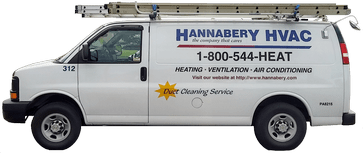Choosing a Contractor:
How Comfortable Do You Want To Be?
Call Us Today!
When it comes to a new home or new place of business, comfort is every bit as important as beauty. Because your air conditioning and heating systems are essentially hidden
features, they are an easy place for your contractor to cut corners. Generally, to keep initial costs low, a contractor will select the lowest bid on a cooling and heating system. But if the lowest bid means a poorly done installation, it can cost you, the building owner, more money in the long run.
Of course, selecting a more expensive air conditioning and heating contractor is no guarantee of quality workmanship and equipment. Even some of the more expensive contractors will skimp on materials and take short cuts in order to increase their profit margin. Below is a list of potential problems that can accompany a poorly done installation.
Selecting a Contractor:
For the protection of you and your home or place of business, make sure that the person or company installing your heating and cooling systems is state licensed and fully insured.
- High noise levels from inferior equipment.
- Mismatched or improperly sized equipment which can affect your comfort, not to mention your utility bills.
- Improperly sized duct work resulting in inadequate or noisy airflow.
- Undersized return air duct(s) which can impede efficiency and overwork your compressor.
- Duct work which has not been properly secured and which may eventually pull free resulting in the heating and cooling of un-conditioned space instead of your home or place of business.
- Condensate drains which have not been placed and installed according to the mechanical code.
- Registers which are not adjustable or which are incorrectly sized resulting in inadequate air flow to individual rooms.
- Improperly installed drain lines resulting in water leaks in your ceiling and/or walls.
- Improper sealing of ducts, registers, plenums and equipment which can cost you money throughout the year.
- Before selecting cooling and heating equipment, the contractor should perform a load calculation on your structure. Ask the contractor to show you the calculation and its results.
- Equipment should be sized according to the load calculation. Undersized equipment will not be able to provide sufficient cooling or heating to keep you comfortable. It will run more than necessary, which means higher energy bills and possibly a shorter life span for its overworked compressor. Cooling equipment which is too large will successfully cool the air, but it will not operate long enough to dehumidify the air.
- Duct size should be based on the load calculation of the individual rooms. Each room will need a different amount of air flow to maintain a comfortable temperature.
- Likewise, the supply registers (the vents through which air conditioned and heated air flow) should be correctly sized and placed in each room. The size and placement is determined by the load calculation and the design of the room.
- Registers should be adjustable; controlling the amount of air flow to individual rooms. (For example, you can close or partially close a damper to a guest room when it is not in use). Some contractors install cheap fixed flow registers, which are not adjustable.
- Each home should have a main duct (or trunk) that extends from the plenum of the unit (the sealed chamber of the air handler) through most of the length of the house. Some homes may require more than one trunk. Some contractors save money by doing an
octopus run
with the duct work, rather than using main trunk ducting. This means that all the duct is connected to a large box and allows you very little control over airflow. - The size, placement, and number of return air (grills and ducts) should be efficiently designed. If there is not a sufficient flow of return air, your system may become starved for air and your compressor will cycle on and off more frequently. This may damage or destroy your compressor.
- The drainage system should include an emergency drain pan if it is above a ceiling. If the primary drain pan becomes clogged, the emergency pan will help protect your ceilings and walls from water damage.
- The entire cooling and heating system should be sealed properly to prevent any leaks that could cost you money. Properly sealing the system costs a little more in time and in materials initially, but it can save you a great deal of money in the long run.
Be sure to ask as well about warranties on labor and parts. Is there a service technician available 7 days a week, 24 hours a day? If your cooling or heating system shuts off or starts leaking water through your ceiling on a Friday night, you won't want to wait until Monday morning for service.
Don't hesitate to ask for references. If possible get references from the occupants of homes for which the contractor has done installations. Did the homeowner have any problems with the heating or cooling systems after they were installed? If so, what types of problems did he have and how long did he have to wait for service? If applicable, has the contractor honored the warranties? Builders who have used a given contractor may not be aware of installation problems as their staff will generally refer the homeowners directly to the contractor if and when problems arise.
Please keep in mind that the information found on our website is provided free of charge and Hannabery HVAC does not assume any liability resulting from the information we provide. We hope this information helps, but please note that these are just rough guidelines, and not all possible situations are covered. Your HVAC system should be inspected and repaired by a trained technician.
How Comfortable Do You Want To Be?
[Must be in our service area]

